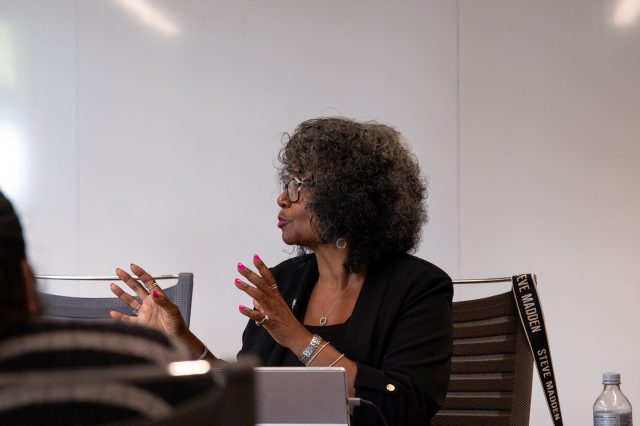[ad_1]
The Senate Advisory Committee on University Affairs met in the Alexander G. Ruthven Building Monday afternoon to discuss resolutions on the creation and review of the University of Michigan’s Standard Practice Guide — the set expectations for individuals and departments to abide by — and on eliminating gender violence on campus.
Chair of SACUA Rebekah Modrak, Art & Design professor, began by discussing concerns about how allegation reports are filed on campus, specifically the limitations and time frame of reporting an incident.
“I got an email from a faculty member a few weeks ago who was having an allegation against them through the Rackham Graduate faculty statement of values, privileges and responsibilities, allegation process,” Modrak said. “There’s no statute of limitations, so a graduate student from 2003 can file allegations, which is problematic for the faculty member.”
SACUA decided they will look more closely at the Statement of Rackham Graduate Faculty Values, Privileges, and Responsibilities at a later meeting.
Luke McCarthy, director of the Faculty Senate Office, brought up the Police Department Oversight Committee election being held Oct. 16 through 17.
“Basically, we’ve got a callout for nominations for running for the Police Department Oversight Committee,” McCarthy said. “So we are checking on eligibility and interest of anybody that is now being nominated.”
The discussion then transitioned to the SPG’s bylaws and how to make the process of creating institution-wide policies more clear and transparent. Vilma Mesa, professor of education and mathematics, said establishing a review committee of faculty representatives would increase transparency.
“I think what we want is to make sure that we openly rationalize what we mean by transparent,” Mesa said. “Meaning (the) University (should) take immediate action to establish a committee that is tasked with creation and review of the SPGs.”
SACUA also discussed how the resolution on the Policy on Sexual and Gender-Based Misconduct can hold the U-M Equity, Civil Rights, and Title IX Office and University personnel accountable for gender-based discrimination and violence on campus.
Faculty Senate Representative Soumya Rangarajan said modifying the resolution to more accurately assess the problems of how the University handles gender violence and discrimination is important.
“The goal of this resolution is to eliminate mishandling of gender complaints related to both gender violence and discrimination,” Rangarajan said. “I really wanted to see it not just succeed but also to have a clear enough focus so that the things it’s aiming at can be accomplished effectively.”
Heather O’Malley, vice chair of SACUA and U-M assistant research scientist of pharmacology, proposed that supportive measures for the victims of misconduct should be more widely available.
“Maybe the issue isn’t that there aren’t supportive measures or that the (Equity, Civil Rights & Title IX Office) isn’t available, but is that they’re not implementing them correctly,” O’Malley said. “Or that they’re not making them available consistently across victims of misconduct.”
After discussing the second resolution, the board discussed the Regents’ bylaws draft of an institutional neutrality policy, which would position the University as neutral on political or social issues that are not directly connected to its internal affairs.
SACUA member Simon Cushing, U-M Flint professor, said he believes the draft should be less ambiguous as to who must remain more neutral within the boundaries of the University.
“The institutional neutrality is about restricting University leaders from taking official positions,” Cushing said. “OK, who’s a university leader? … The draft is full of vague statements that are vague terms that need clear definitions, and it either does too much or too little, depending on how you interpret the terms.”
McCarthy said guidelines about neutrality are especially important to ensure faculty are held accountable by their peers, especially when they do not hold a publicly facing role.
“Use me as an example, director of the Faculty Senate office,” McCarthy said. “I report to you all, and so what I do is dependent upon if there’s accountability built in. … It seems like there are particular people that have a lot of authority based on where they are.”
Daily Staff Reporter Halle Pratt can be reached at hallehap@umich.edu.
Related articles
[ad_2]
Source link











